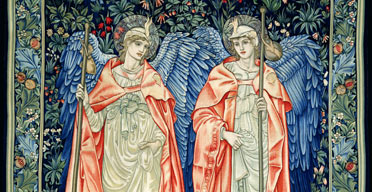Monday
Psalm 103.2 “Bless the Lord, O my soul, and forget not all his benefits.
This verse was used on our last Sunday service of 2024. It describes that hinge point from which we look back with thankfulness and look forward with trust. Certain kinds of forgetting are embarrassing, especially if it is someone’s birthday, or missing an important planned meeting. To forget suggests it didn’t figure high in our priorities. The Psalmist warns against such careless taking of God for granted. Don’t embarrass yourself by forgetting God whose blessings tumble regularly into our lives!
Tuesday
Colossians 3.3 “For you died, and your life is now hidden with Christ in God.”
Paul starts by saying “You have been raised with Christ…” What that means is that our old self has died, and we are now a new creation in Christ. Not only that – but we are drawn into the life of Christ, and Christ dwells in us by faith. We are hidden, held and secure within the eternal love of God in Christ. ‘Hidden’ means protected, and it is in the perfect tense – which means what happened then, remains accomplished now, and will continue to be true. “Blessed assurance, all is at rest, I in my Saviour am happy and blessed….filled with his goodness, lost in His love.”
Wednesday
John 3.21 “But whoever lives by the truth comes into the light, so that it may be clearly seen that what he has done has been done through God.”
Truth in the Gospel of John combines what we believe with how we live. It involves believing the revelation of God in Jesus, and living in a way that demonstrates the reality of that faith. Faith is both the assent of heart and mind, and the obedience of a life lived in the light of what we believe. This verse emphasises that what we do shows who we are, and to whom we belong. As we come into the Light that is Christ, and open ourselves to the one who is full of grace and truth, the evidence will be there for all to see – our way of life is a walk with integrity and trust in the truth of Christ, so that by God’s grace we radiate the Light and Life that is Christ in us.
Thursday
John 2.11 “This, the first of his signs, Jesus performed in Cana of Galilee. He thus revealed his glory and his disciples put their trust in him.”
Water into wine! An irrecoverably embarrassing social gaffe is avoided because Jesus quietly ‘revealed his glory’. This was no party trick. Wine, rivers full of it, streaming down mountain tributaries, was a sign of the Lord’s blessing and coming amongst his people. Amos, Joel, Isaiah and the Psalm-poets described the age of the Messiah as just such an age of joy, plenty and transformation. Water into wine was a sign for those who had eyes to see beyond the miracle, and behold the glory of the One who was present. The extravagance of the quality and quantity is a sign that “of his fullness we have all received, grace, after grace, after grace – one blessing after another!” John is saying, “God’s glory revealed in Christ is absolutely extraordinary!”
Friday
2 Thessalonians 2.16-17 “May our Lord Jesus Christ himself and God our Father, who loved us and by his grace gave us eternal encouragement and good hope, encourage your hearts and strengthen you in every good deed and word.
I don’t know, but maybe Paul became the apostle of encouragement because at the very beginning it was Barnabas, the son of encouragement, who stood up for him as guarantor of his good faith. Paul knew the importance of encouragement, words of reassurance, and building confidence. These words could be a good prayer to start your day – just change the pronouns to “our hearts” and “strengthen us.” So may God our Father who loved us gives us “eternal encouragement and good hope.”
Saturday
Matthew 7. 12 Jesus said, “So in everything, do to others what you would have them do to you, for this sums up the law and the prophets.”
Those first three words, “So in everything.” Careful thought about how we treat others can’t be selective. If we are only kind, considerate, generous in judgement of those we already like, that won’t do. We would have people respect us, look out for us, forgive us, take time to understand us, listen to us – the list of our expectations is demanding and long. For followers of Jesus, every person we encounter should be able to expect the same. I know that’s idealistic. Of course it is! Because it means living and enacting those other words of Jesus: “Love your neighbour as yourself.”
Sunday
1 Peter 4.11b “If anyone serves, they should do it with the strength God provides, so that in all things God may be praised through Jesus Christ.”
Our service to God is always by God’s grace, in God’s strength and for God’s praise. God is never our debtor. What we give we were first given. Peter of all people knew that following Jesus could be hard going. But here he was, late in life, still following, still serving as best he could, and over the years had grown a chastened sense of his own importance. He could just as well have written Paul’s words: “Continue to work out your own salvation with fear and trembling, for it is God who works in you to will and to act according to his good purpose.” (Phil 2.12) So, going into 2025, we continue to serve God by serving others, doing so with the strength God provides.


